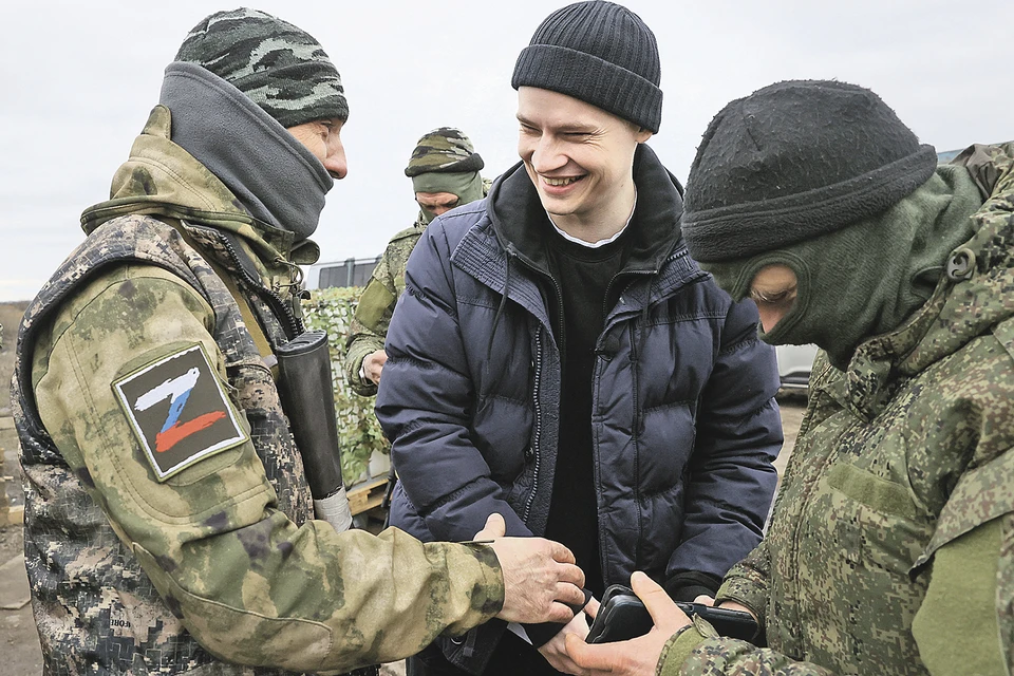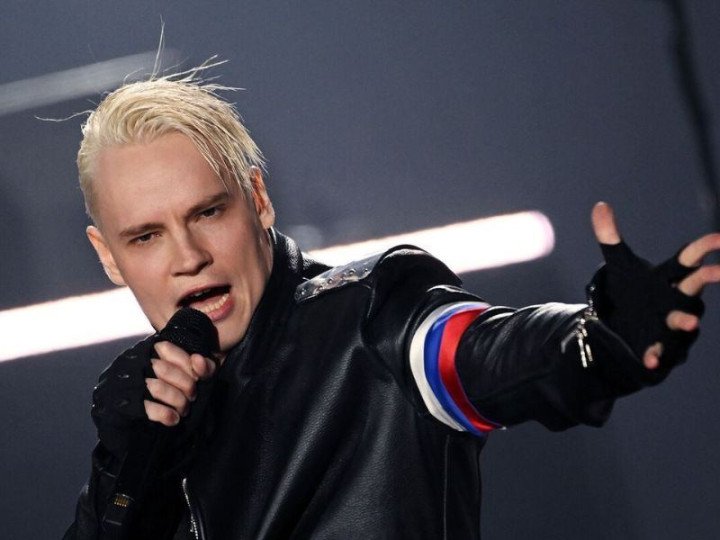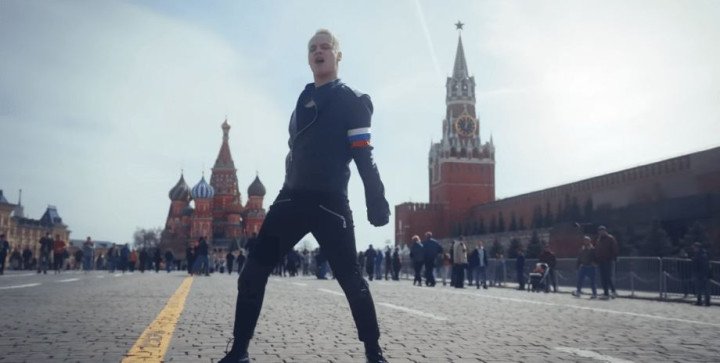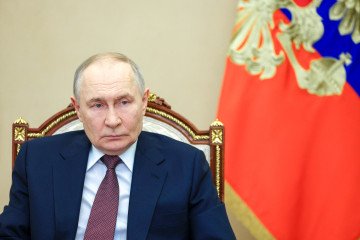- Category
- Anti-Fake
Who is the Russian Z-Celebrity Shaman and Why Has the EU Sanctioned Him?

The European Union recently imposed sanctions on Russian musician Shaman, also known as Yaroslav Dronov, for his direct support of Russia’s brutal war in Ukraine. Shaman’s transformation from a musician to a propagandist highlights the role of cultural figures in legitimizing state-sponsored violence and aggression.
Yaroslav Dronov, Russian singer under sanctions who performs under the stage name Shaman, has become a prominent figure in Russia’s wartime propaganda machine. Known for his hyper-patriotic songs, Shaman has used his platform to amplify Russian pro-war rhetoric, aligning himself closely with the Kremlin’s narrative. His music, particularly his song “I’m Russian,” has become an anthem for Russian nationalism, with millions of views on YouTube. Shaman’s influence is undeniable, and his music serves as a rallying cry for those backing the war.
Why is Russian singer Shaman under sanctions
Shaman’s alignment with the Russian government is explicit and unwavering. He has performed at numerous state-sponsored events and rallies, where his songs are used to boost morale among troops and civilians alike. His performances are often characterized by a fervent display of patriotism, reinforcing the Kremlin’s narrative of a just and necessary war.

In addition to his performances, Shaman has made several high-profile visits to the frontline and occupied territories of Ukraine. These trips are carefully orchestrated media events, designed to show solidarity with Russian soldiers. During these visits, Shaman has performed for troops, met with military leaders, and publicly expressed his support for their actions. These appearances are widely covered by state media, further amplifying his message.
Shaman is often seen brandishing the “Z” insignia, which has become Russia’s symbol of its full-scale invasion of Ukraine. This symbol, banned in many countries due to its fascist connotations, is proudly displayed by Shaman as a badge of honor. He has also participated in campaigns to raise funds and gather supplies for the Russian military. Through concerts and social media campaigns, he has encouraged his followers to donate to causes that support the war effort.

The EU’s sanctions against Shaman are a response to his role in promoting the Kremlin’s propaganda. By freezing his assets and banning him from traveling, the EU aims to curtail his influence and send a clear message about the consequences of supporting state-sponsored aggression. Shaman’s music is more than just entertainment; it is a strategic tool used to manipulate public opinion and sustain support for the war. His songs foster a sense of national pride, providing a psychological boost to a population grappling with the realities of conflict. This makes him a valuable asset to the Russian government’s propaganda efforts.
Shaman’s rise to prominence has also been marked by his growing popularity with powerful Russian figures, including the Kremlin. The young singer’s star has been rising as the war in Ukraine continues into a second year, aligning his music with Moscow’s party line. When Vladimir V. Putin staged a patriotic rally coinciding with the anniversary of Russia’s full-scale invasion, Shaman performed “Vstanem,” or “Let’s Rise,” a ballad of gratitude to veterans, just before the Russian president came onstage. He also performed during Putin’s celebration of the annexation of four Ukrainian regions, singing Russia’s national anthem.
The shift to more nationalistic themes has been lucrative for Shaman. He is often invited to state-sponsored shows, and his performances are highly sought after, with significant fees for both public and private concerts. His success has prompted some of his rivals to reshape their work to stay in favor with the Kremlin.

Shaman’s song “Vstanem” was released on Feb. 23, 2022, on the eve of the invasion of Ukraine, and has become a hit with patriotic hard-liners and ordinary Russians alike. It was followed by another patriotic anthem, “Ya Russki” (“I Am Russian”), which has registered millions of views on YouTube. Both songs are integral to the Kremlin’s wartime communication strategy, celebrating fallen soldiers and uniting Russians against the “collective West.”
Despite Shaman’s significant influence over several demographics, Russia’s youth, who are the demographic most likely to oppose the war, have become his primary target. Recognizing his success, Russia’s Ministry of Culture has announced plans to promote more pro-war artists, likely aiming to replicate Shaman’s impact among the youth.
Shaman’s rise and the subsequent sanctions against Russian artists highlight the significant role cultural figures can play in state propaganda. His music, filled with patriotic fervor and nationalistic themes, serves as both a reflection and a driver of the Kremlin’s militaristic worldview.R
-5adb65e550f9dec24a01a35019e4b6b5.jpg)
-3db1bc74567c5c9e68bb9e41adba3ca6.png)




-f88628fa403b11af0b72ec7b062ce954.jpeg)